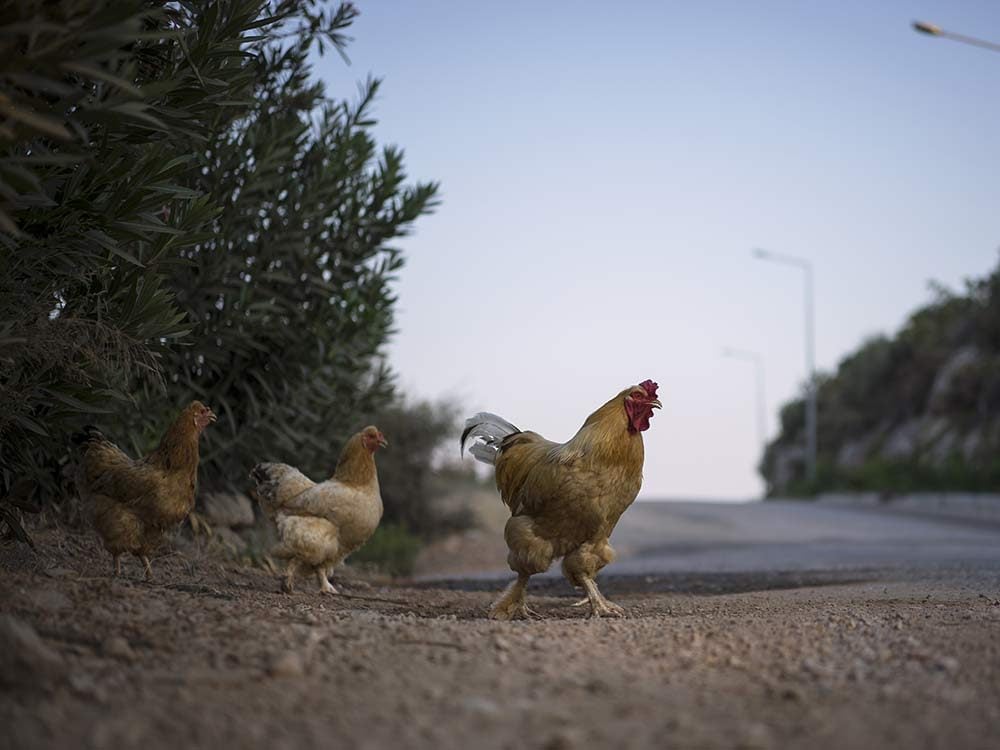
Knock-Knock!
During Prohibition in the 1930s, if you wanted to get into a speakeasy, you would knock on the door, someone would ask, “Who’s there?” and you’d have to say a password. According to joke historian Charlie Orr, drunken patrons often had fun with the password custom as the night wore on, and that’s how the knock-knock joke was born. Orr claimed that the very first knock-knock joke was told in the restroom of a Philadelphia hotel. The first guy said, “Knock-knock.” His friend replied, “Who’s there?” “Ranger.” “Ranger who?” “Ranger clothes before you leave here!”

Tom Swifties
Uncle John’s favourite type of pun consists of a made-up quotation followed by a clever attribute that reinforces what was said:
- “I feel like raising the dead,” said Tom, cryptically.
- “That’s the last time I stick my arm in a lion’s mouth,” said Tom off-handedly.
These puns parody the writing style in the Tom Swift book series. Created in 1910 by Edward Stratemeyer (who also created the Hardy Boys and Nancy Drew), Tom Swift is a teenaged hero who uses his wits to thwart bad guys. Stratemeyer used clever wordplay, such as, “‘We must hurry,’ said Tom swiftly.” The pun style was originally called Tom Swiftly, later shortened to Tom Swifty.

Polish jokes
Blame Adolf Hitler for these. In his quest to conquer Poland in the 1930s, Hitler pushed the racist “dumb Polack” stereotype so the rest of Europe wouldn’t sympathize with the country’s fate. The Nazi propaganda machine claimed, among other things, that Polish soldiers on horseback had once attacked German tanks with swords. That stereotype spread to the U.S. after the war, and by the 1960s, Poles had become a punchline. The TV show Laugh-in (1967–73) featured a regular segment dedicated to Polish jokes. Books of Polish jokes followed over the next decade. The perception began to change in 1978 when Cardinal Karol Wojtyla became the first Polish pope (John Paul II). The fad tapered off after the fall of the Soviet Union in 1991.

Yo’ Mama
These jokes became popular in the 1960s in inner cities as part of a trash-talking game called the Dozens. Two African Americans would trade insults until one of them couldn’t think of a comeback. The Dozens, which is considered a progenitor of free-style rap music, goes back centuries. According to Mona Lisa Saloy’s book, Still Laughing to Keep from Crying, “The Dozens has its origins in the slave trade of New Orleans, where deformed slaves, punished with dismemberment for disobedience, were grouped in lots of a ‘cheap dozen.’ To be sold as part of the ‘dozens’ was the lowest blow possible.” And in the insult game that came out of it, there is no lower blow than one directed at your opponent’s mama:
- Yo’ mama so hairy, Bigfoot was taking her picture!
- Yo’ mama so stupid, she cooks with Old Spice!
- Yo’ Mama so fat, she went to the movies and sat next to everyone!

The Chicken joke
First appeared in print in 1847 in a New York magazine called The Knickerbocker, on a page titled “Gossip with Readers and Correspondents.” A reader wrote in:
There are “quips and quillets” which seem actual conundrums, but yet are none. Of such is this: “Why does a chicken cross the street?” Are you “out of town?” Do you “give it up?” Well, then: “Because it wants to get on the other side!

The Newspaper joke
What’s black and white and red all over? A newspaper, of course. The joke first appeared in an American humour anthology in 1917.

Elephant jokes
How do you get six elephants in a Volkswagen? Three in the front and three in the back. This fad began in 1960, when Wisconsin toymaker L.M. Becker Co. released a set of 50 elephant-joke trading cards. (That one is card #12.)